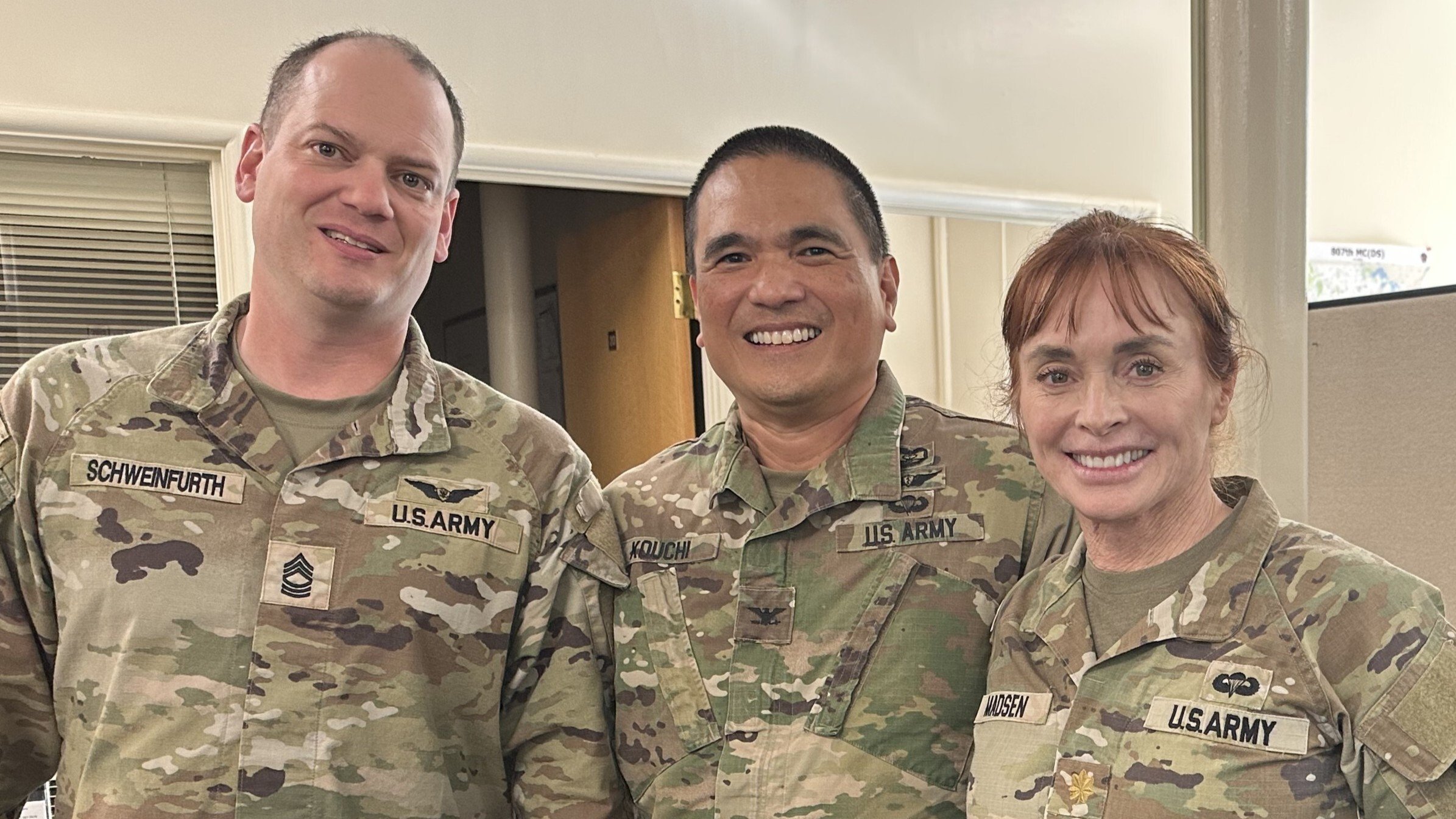No Knife Hands Here: Leading Without A Formation
No Knife Hands Here: Leading Without A Formation
By Ludwig Schweinfurth

Having been through approximately five trainee platoon guides in a matter of days, my strategy of staying quiet and out of sight failed and I found myself before 63 fellow trainees staring back at me for their next order. Something clicked, I found the voice in my gut instead of my cracking throat and commanded the formation through the remainder of the day, certain my time was short. The next thing I remember was graduating as honor platoon and our drill sergeants had seemingly forgotten to fire me. It felt unwise at this point to remind them. The challenge of leadership had turned out quite simple: just be ready before everyone else, eat after everyone else, and ensure they have preparation and resources to succeed. I studied the next day’s training from the “Smart Book,” asked for guidance from our drill sergeants, and responded to the needs of my platoon as if they were a part of my own body. When they hurt, I hurt. When they were tired, I was beyond tired.
Over the next 24 years I would live by these same three tenets of leadership… plus three more I’d picked up for general military success: get a haircut, be on time, and keep your hands to yourself. In other words, just “do the right thing.
What I found was a situation quite different than expected, a small group of guys (including myself), somewhat wondering what we’d got ourselves into and looking for direction. It felt like Basic Training all over again. Once more, something clicked… Standing up as IT Department Manager at Elevait Solutions has been yet another culture shock, and yet another rewarding experience of leadership. It really just comes down to the people.
I’ll tell you a secret, leading people is an act of selfishness, not selflessness. I gain great value from the team’s collective progress. The veterans I get to lead, mentor, and roast in our morning standups deserve outstanding leadership after giving up so much of themselves for so long. For some, this is their first experience in the sector of “real jobs,” having joined the military right from high school. For others, this experience represents a transition from a culture they’ve lived in their entire adult lives.
So how do I, also having no real experience in the private sector, lead them through it? The same way I’ve done it the last two decades, by placing their needs above my own, feeling their fears and anxieties with them, providing them with resources and removing barriers to success. In so doing, I reap the emotional reward of their accomplishments. Their success is my success. To be fair, I told you leadership was selfish.
Of course, it’s not all puppies and rainbows. We’ve experienced setbacks and found ourselves discouraged by our failures, but we are a team and will move forward together.
A big part of this transition has been humility. I’d been quite successful as a soldier, becoming the senior operations non-commissioned officer for the largest medical division in the military, and gaining the professional trust and respect of the Soldiers within, and the officers we worked for. I can’t count the number of times I’d been asked to “hold court” by either, to share my experience and lessons learned over the years. I can tell you right now, I may not have stature in the private sector IT space, but I’ll get there the way I did in the Army, by remaining humble and learning at every opportunity.
This year, Memorial Day came in for a harder landing than I’m used to. It dawned on me I wasn’t just mourning the friends I’d lost. I’ve been wrestling with something deeper; I’ve been mourning the close of my career and the sum of its meaning. It’s who I’ve been for nearly a quarter century, more than half my life. Walking away from the Army sometimes feels like I’m giving up on the principles my friends died for. It’s tough to reconcile.
I’d spent a long time resisting the Army and not letting it take over who I am. I’ve always declared a “no hooah zone” in my presence, I don’t have a .01 buzz cut, and I try not to “knife hand” my kids… “try” being the operative word. That being said, I’d been foolish in overlooking just how much my identity has been affected by the military and the emotion in letting it go. Combined with the anxiety of not knowing what the future holds, the challenge of securing an income, and my responsibility to be an emotionally present husband/father, I have really been struggling with this change.
If you’re having trouble with the transition out of the military, you’re not alone, and please don’t be afraid to ask for help. Lean on your mentors, your family, and your fellow vets who’ve done this before. Dig deep, find some humility, and ask for help. People are busy, but it’s been my experience they appreciate this monumental change. They will help, but only if you ask.

Nick, one of the other interns who’d been with me from the onset and whose commitment to group learning led me to appointing him team leader in the following weeks, had come to me for his first 30-day performance review. Of course, what should have been 30 minutes nearly doubled in time over two separate sessions because we kept nerding out over our collective lessons learned and plans for the future of the department. Turns out time is linear and doesn’t care much about the fun you’re having. Watching him step up to lead his team has been incredibly rewarding. I truly believe he will go far and accomplish great things and selfishly look forward to sharing the joy of his success.
Despite the challenges, these guys are thriving. Their projects are progressing, with setbacks of course, but progress can be seen. I’m beginning to suspect veteran transition firms, much like leaders, are secretly selfish in their motivations, because working with this team has been transformative.
In the military we break things, and sometimes people, in service to a higher cause. Through this purpose we also create something most never get to experience for themselves, a focused team built on loyalty and trust. Sure, these teams are created only through the diamond-forming pressure of trauma-bonding, but we are stronger for it. These connections are not something I can just clock out from. I genuinely care for these men and women and hope the void they leave in our team will be filled with pride in their future success.
Leadership is hard, as it should be.
“This We’ll Defend.”
